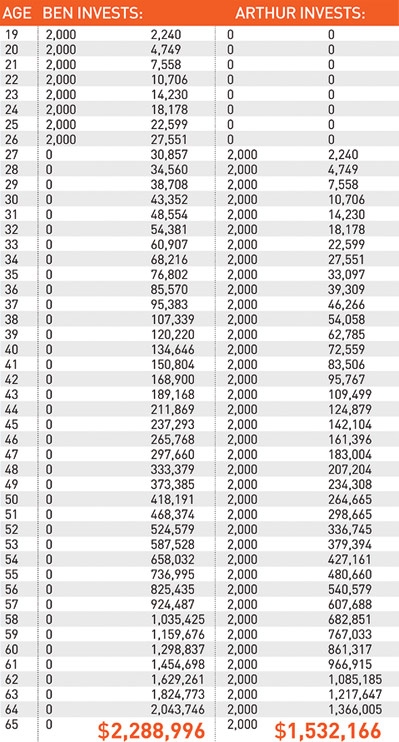pheller said:
I think one thing people forget about is how much income and earnings matter in the grand scheme of things.
There are a lot of reasons why living poor in California making $100k a year but putting 20% income into retirement/savings is better than living like a king in Tulsa making $50 a year putting in the same percentage. That first guy might spend 3x as much on housing, drive a Civic, eat lots of beans and rice, but come retirement, he's got a whole lot more money IF he leaves California.
As such, I've started to realize that the ideal job hop is one that puts more money (amount) in the pocket at the end of the day. That doesn't mean a bigger salary, but if I can put $20k in savings every year working a $50k job thats better than $15k savings a year working a $75k job.
Percentages are great, but amounts matter too.
I don't think you're making an argument for how much incomes matter here. What you're really showing, is how much costs matter. The guy in California with the higher salary only comes out ahead of the person in Tulsa if he's willing to sacrifice some quality of life for the entire time he's working there, because the cost of living is so much higher. If he had a comparable house/car/spending habits/etc as he did in Tulsa, then he could very well be worse off with the higher salary. It's not about how much you make, it's about how much of that you keep. The more you can keep, the higher your quality of life can be. I'm not suggesting that you need to spend more to increase your quality of life, just that an increase in income can be detrimental to your overall quality of life if it means your expenses increase too.
I think a quick and easy metric to use to determine "money you keep" or "chances of having a decent quality of life" is to compare a salary to the median income in the area.
Income increases only help if they increase relative to your expenses. Lets say you're an engineer that lives in Indianapolis, makes 75k/yr, and lives comfortably. Median income is roughly 60k, median house price is 164k so your income is 1.25 X the median for the area and you can get an average home for 2.2 times your annual income. One day, a head hunter calls and says that a company in Seattle wants you and is offering 100k/yr. "Great, that's a 33% raise!" you think. But the median income in Seattle is 100k/yr, and median housing price is 730k. So your income would be 1.0 times the median, and to have an average house for the area you'd be spending more than 7 times your income on housing. The 33% income boost would probably mean that you'd be worse off financially because your dollar wouldn't go as far, and you either stretch things even further to have an average home, or you have to settle for a worse home than you had in the Midwest. Either way, your quality of life suffers because your costs increased more than your income increased.
To work the same example backwards, in order to have a similar quality of life in Seattle as Indianapolis, you'd have to be paid 1.5 times the median income for the area, which would put you in the 150k ball park (200% of your current income). And that doesn't account for the more expensive housing in Seattle. To get a similar house/income ratio, you'd have to be paid 330k/yr.





































